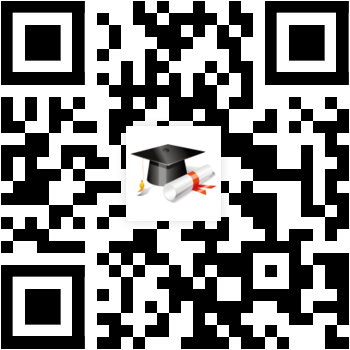一月联考英语二英语知识运用练习题
来源:在职研究生招生信息网 发布时间:2016-08-23 09:13:00
Directions:
Read the following text. Choose the best word(s) for each numbered blank and mark A, B, C or D on the ANSWER SHEET. (10 points)
While western governments worry over the threat of Ebola, a more pervasive but far less harm- ful 1 is spreading through their populations like a winter sniffle: mobile personal technology.
The similarity between disease organisms and personal devices is 2 . Viruses and other para- sites control larger organisms, 3 resources in order to multiply and spread. Smartphones and other gadgets do the same thing, 4 ever-increasing amounts of human attention and electricity sup- plied 5 wire umbilici.
It is tempting to 6 a “strategy” to both phages and phablets, neither of which is sentient. 7 , the process is evolutionary, consisting of many random evolutions, 8 experimented with by many product designers. This makes it all the more powerful.
Tech 9 occurs through actively-learnt responses, or “operant conditioning” as animal be haviourists call it. The scientific parallel here also involves a rodent, typically a rat, which occupies a 10 cage called a Skinner Box. The animal is 11 with a food pellet for solving puzzles and punished with an electric shock when it fails.
“Are we getting a positive boost of hormones when we 12 look at our phone, seeking re- wards?” asks David Shuker, an animal behaviourist at St Andrews university, sounding a little like a man withholding serious scientific endorsement 13 an idea that a journalist had in the shower. Re- search is needed, he says. Tech tycoons would meanwhile 14 that the popularity of mobile devices is attributed to the brilliance of their designs. This is precisely what people whose thought processes have been 15 by an invasive pseudo-organism would believe.
16 , mobile technology causes symptoms less severe than physiological diseases. There are even benefits to 17 sufferers for shortened attention spans and the caffeine overload triggered by visits to Starbucks for the free Wi-Fi. Most importantly, you can 18 the Financial Times in places as remote as Alaska or Sidcup. In this 19 , a mobile device is closer to a symbiotic organism than a parasite. This would make it 20 to an intestinal bacterium that helps a person to stay alive, rather than a virus that may kill you.
1. [A] phenomenon [B] epidemic [C] issue [D] event
2. [A] striking [B] obscure [B] carefu [C] interesting [D] mysterious
3. [A] relying [B] choosing [C] grabbing [D] using
4. [A] taking over [B] feeding on [C] catching up [D] allowing for
5. [A] with [B] over [C] to [D] via
6. [A] point [B] turn [C]attribute [D] prefer
7. [A] Instead [B] Moreover [C] Therefore [D] Otherwise
8. [A] which [B]as [C] that [D] where
9. [A] progress [B] term [C] crisis [D]addiction
10.[A] dangerous [B] special [C] large [D] funny
11. [A] rewarded [B] resisted [C] resumed [D] reversed
12.[A] anxiously [B] occasionally [C] happily [D] endlessly
13. [A] within [B] from [C] about [D] through
14. [A] support [B] approve [C] argue [D] insist
15. [A] formed [B] seperated [C] classified [D] modified
16. [A] Surprisingly [B] Importantly [C] Fortunately [D] Regrettably
17. [A] compensate [B] help [C] comfort [D] improve
18. [A] share [B] obtain [C] subscribe [D] observe
19. [A] part [B] sense [C] level [D] way
20. [A] adaptive [B] carefu [C] similar [D] capt
上一篇: 同等学力申硕心理学专业单项选择练习题





















